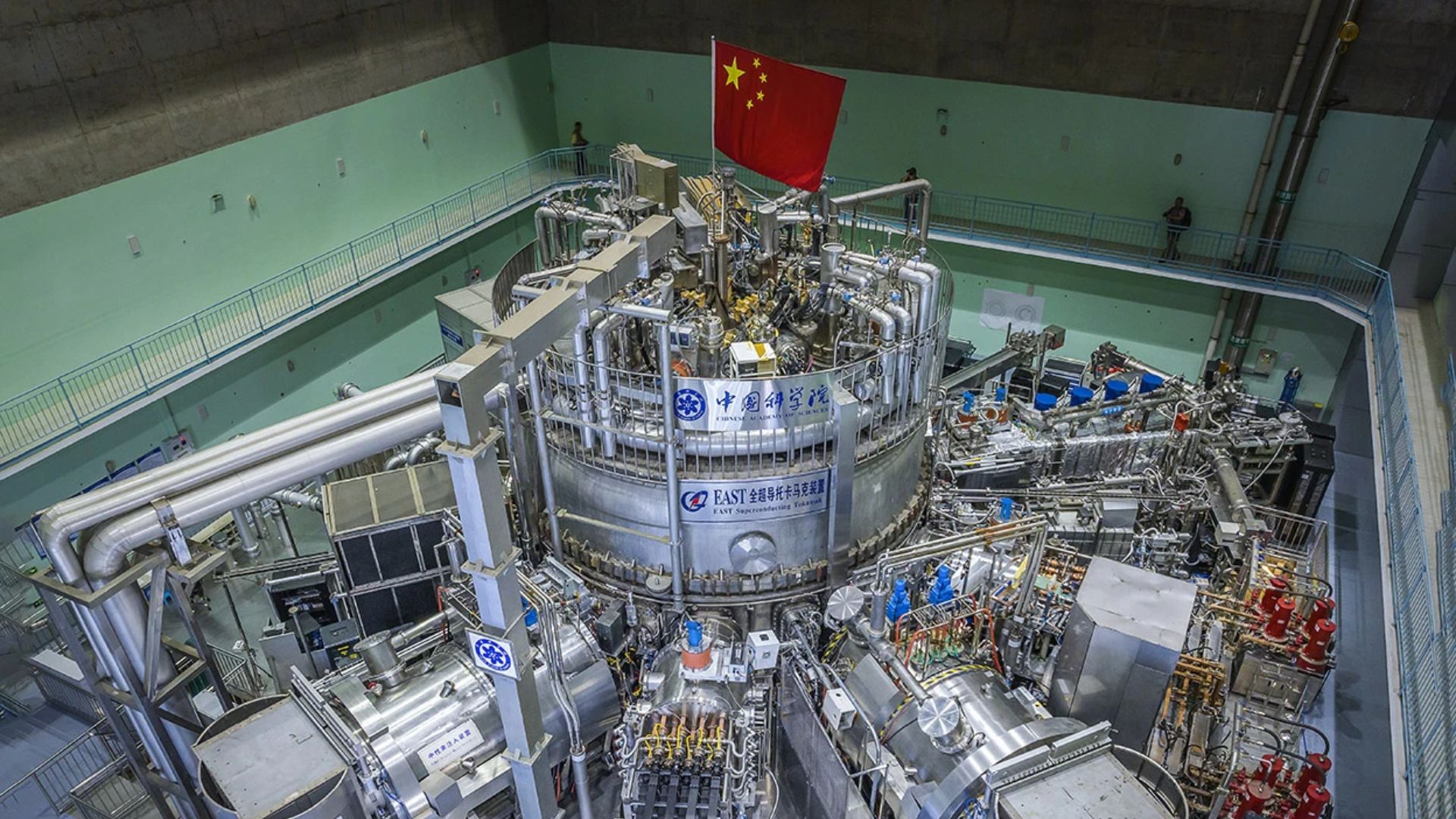China could build the first fusion-fission hybrid plant by 2030
China could build the first fusion-fission hybrid plant by 2030

China could beat West with world-first fusion-fission plant by 2030

China could build the first fusion-fission hybrid plant by 2030

China could beat West with world-first fusion-fission plant by 2030

I might make China my religion
The high-energy neutrons from fusion reactions will trigger fission in surrounding materials, increasing energy output while potentially reducing nuclear waste.
China is achieving high efficency Fusion early!
By using it to supercharge fission plants
Nuclear fission is not as dangerous as people think it is. Nuclear powerplants are built like fortresses, there are many protocols for safety and a well built and well planned nuclear powerplant will not bring any casualties. The alternative on the other hand (fossil fuels), kills more people every year than nuclear energy in its whole history. If you asked me if I'd rather live next to a nuclear power plant or a coal/oil based thermoelectric, I'd choose the one who gives out a lesser radiation dose, the nuclear powerplant
It's the catastrophic failures that leave long lasting multi generational environmental deviststion. The more fission plants we have, the higher the risk of one going. We live in the days where 1 in 500 year events are happening on the norm and massive state actors actively target nukes as policy. Fukushima happened because despite the "it would never happen here that bad" happened even with multiple redundancies and built like a fortress. Every fission plant made increases the chances of another catastrophic failure. It's a gamble with worsening odds that I feel is a blind spot.
I applaud China in innovating, but fission plants give me red flags as they pile on the risk. Then piping a neutron stream into one seems even more risky. I would to develop energy storage and splitting hydrogen and oxygen. At least if a hydrogen / oxygen plant goes it won't make exclusion zones or poison the water supply.
Can you imagine if Fukushima happened on the shores of Lake Michigan rather the Pacific Ocean? It would contaminate the drinking water and economic lifeblood for millions. Many see fission as a quick fix, but I feel they overlook the odds when that kind of money (and there's a huge nuke lobby) for these plants could be used in developing less risky solutions that would benifet us in the long term goal of becoming a Type 1 and beyond civilization.
I thought we would have learned after Fukushima fission was not the way to go.
A fusion fusion-fission plant
Unlike pure fusion projects such as ITER, Xinghuo will combine fusion and fission. The high-energy neutrons from fusion reactions will trigger fission in surrounding materials, increasing energy output while potentially reducing nuclear waste.
So will the fission part of the plant will be processing nuclear waste?
Also, interesting that the hybrid nuclear plant has the opposite approach as hybrid nuclear bombs, where fission energy is used to trigger a fusion reaction.
10 years from now China's going to (insert pictures of startrek) and the US is going to (insert pictures of Ravenholm).
5 years actually 😏
They talked about Q value alot, but why compare those to pure-fusion test projects? Strapping a nuclear reactor is obviously going to generate more energy than an experimental device not designed to break even. What I want to know is it predicted to be more or less efficient than a reactor by itself, what other advantages it might have, is it capable of recycling nuclear waste for example.
One advantage of these reactors is they're completely meltdown proof. You design the fission component to be sub-critical - the fission core can only maintain a reaction as long as the neutron flux from the fusion reactor is maintained. The neutron flux doesn't just enhance fission, it's a necessary component for the fission to keep going at all. And the fusion portion doesn't make net energy, it's just a glorified way of turning electricity into neutrons.
If anything goes wrong, you just flip a switch and shut down the fusion part of the reactor. Temp starts increasing too much? A sensor flips a switch and the fusion reactor shuts off automatically.
burying the lede a little there - fission plants have existed for like 80 years; fusion-fission is the important part
I hadn't heard of it before, but it seems feasible, and has some attractive characteristics for someone like China with a longer perspective on its investments.
You know how a thermonuclear bomb uses neutrons from a fusion detonation to enance a fission detonation?